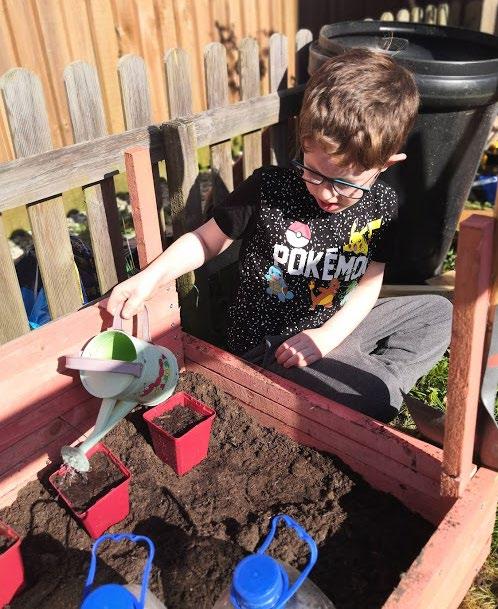
2 minute read
About this issue
Play Wales has put together this issue of Play for Wales to highlight the importance of play during times of uncertainty. Playing:
helps to give children a feeling of normality and joy during an experience of loss, isolation and trauma helps children to overcome emotional pain and regain control over their lives
Advertisement
helps children make meaning of what has happened to them, and enable them to experience fun and enjoyment
offers children an opportunity to explore their own creativity.
The onset of the coronavirus pandemic means we had to deal with uncertainties and unknowns very quickly and with little preparation. But, against a backdrop of change, we have seen wonderful things happening as organisations repurpose themselves to come together to offer help and support. From online storytelling, sharing daily indoor play activities and providing children with play resources, play and children’s organisations across Wales have shown their resilience and commitment to the right to play, making sure it remains high on everyone’s agendas.
Most of our recent efforts in supporting a greater understanding of play, well-being and resilience focuses on the role that playing has in enabling children to create attachments with peers, places and neighbourhoods. Recent restrictions requiring physical and social distancing means we need to rethink what this means. There are valid concerns about how we might lessen the potential negative impact that prolonged social distancing might have on our children.
And it is here that we need to pause and stop and do our best to trust in children and their capabilities to find moments of playfulness. This will not go away during times of stress if adults continue to make sure that they value playing. Children have always needed effective coping skills. Our changing world brings many advantages and more recently, some unknowns and new ideas. The need to provide time, space and permission to play is as important as ever, as highlighted by children in this issue of the magazine.
Some children can rise above adversity to adapt to serious challenges, stress and risks without much help. In times of uncertainty, some children might find this less easy and they will need the support of others to make the most of the environment around them. It is important to remember that playing is something that children do whenever they have the chance. It is their way of supporting their own health and well-being. Understanding this helps us to advocate for a rightsbased approach to support children’s play and the importance it holds for them in their immediate lives and their everyday experiences.









